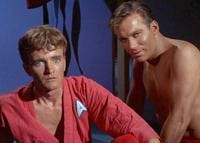Published May 18, 2013
EXCLUSIVE INTERVIEW: Dorothy Fontana, Part 1
EXCLUSIVE INTERVIEW: Dorothy Fontana, Part 1
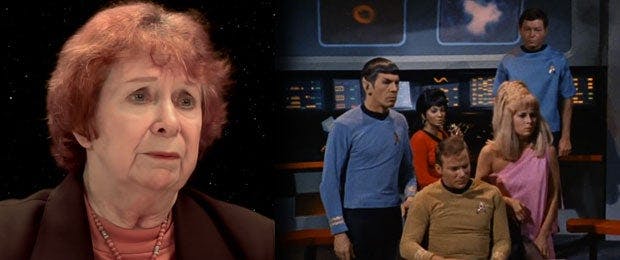
Dorothy Fontana – better known as D.C. Fontana – has led a long and illustrious career in Hollywood as a writer, story editor and producer. Most people, when they hear the name, immediately associate her with Star Trek, and that’s understandable. Fontana was there right at the very beginning of Star Trek: The Original Series. Though she subsequently lent her talents to many other programs, spanning from Bonanza and The Six Million Dollar Man to The Waltons and Babylon 5, Fontana returned to the Trek fold for numerous ensuing ventures, including The Animated Series (serving as story editor and associate producer), The Next Generation (she co-wrote the series’ premiere “Encounter at Farpoint”) andDeep Space Nine (“Dax”). Also on the Trek front, she penned a novel (Vulcan’s Glory), a comic book (Star Trek: Year Four – The Enterprise Experiment), several video games (Bridge Commander, Tactical Assault) and an episode of Star Trek New Voyages: Phase II (“To Serve All My Days”). These days, Fontana remains vitally active as a writer, with several movies, a TV series and an interactive medical education game in varying stages of development. She’s also joined forces with several Trek alumni determined to transform David Gerrold’s The Star Wolf books into a television series. StarTrek.com previously reported on the Kickstarter campaign aimed at financing a Star Wolf pilot – click HERE to read that story and HERE for the Star Wolf Kickstarter page – and today we kick off an extensive two-part email interview with Fontana in which she fills us in on her involvement with The Star Wolf and candidly recounts her time in the Star Trek universe. Below is part one of the conversation, and be sure to visit StarTrek.com
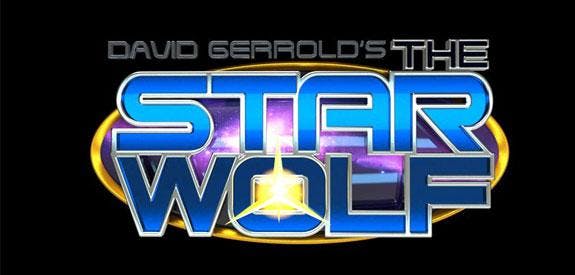
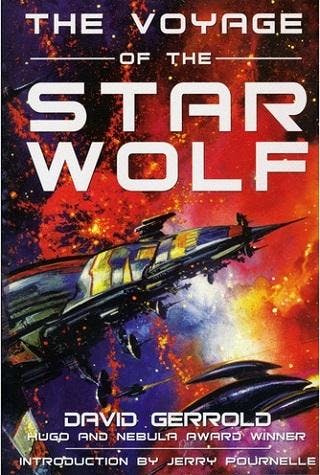
again tomorrow to read part two.Let's start with the present. How did you come to be involved with the Star Wolf project? And, if it goes to pilot, what will you handle on the writing/production side?FONTANA: David Gerrold approached me to read THE STAR WOLF pilot script and the bible he had created, based on his STAR WOLF novels. I really liked the idea, the characters and how it came together as a potential TV series. (I had read the published novels before this.) After making comments, David and I talked more about the series’ potential, and we put together the first season and a half story arc and paragraphed stories together. If it gets sold, I would be co-showrunner and would work with writers developing and writing stories and scripts for the series. What elements of The Star Wolf do you feel make it most viable as a show, as a piece of science fiction, as something fresh and new?FONTANA:THE STAR WOLF has a hero who is not always right, does not always make the right choices, but has intelligence and a good heart and is a genuine leader in a crisis. The crew is not the best, the brightest, and always on the ball. They make human mistakes. In short, these are people the audience can understand and relate to. The stories will require a good deal of these people, a good deal of their heart, souls and experience - especially the First Officer - our hero. He's qualified to be a captain, but fate has put him in a position of being second in command - but he'll be the goddamn best First Officer in the fleet. Unfortunately, he won't be serving (necessarily) under the best captains in the fleet - much to his disgust and often his pain. The Kickstarter campaign is underway. What do you think about this whole new world in which, via the Internet and through crowdsourcing, money can be raised to realize a project such as this?FONTANA: Some projects have famously proven they can raise the money they require to move forward. This may be the wave of the future - but it may be viable only for certain projects or certain kinds of projects. I think it's so new right now that we will have to wait and see how it all progresses. What else are you working on these days?FONTANA: I have several feature scripts being circulated right now. I'm working on the script for an interactive medical education game that has an NIH grant. This project is for use in medical schools to teach young doctors how to communicate with their patients. I am also currently writing a script which is an adaptation of a forthcoming military romance novel, which will be published in December.We saw you at the Walter Koenig Star Ceremony party last fall. How pleased were you to be there for that, to celebrate with Walter, and to see folks like Nichelle Nichols and Harlan Ellison?FONTANA: I thought it was a great evening - most especially in that it honored Walter's contributions to the industry as an actor, a writer and a director. I hadn't seen Nichelle or Harlan for a while (though I'm in touch with Harlan several times a year anyway via cards and notes) - and that made it an especially lovely get-together. We know you've covered all of your Star Trek ground many times before in interviews, but we're going to ask you to bear with us. We ask that because many StarTrek.com readers are new to the franchise, having become fans as a result of seeing Star Trek (2009). They became fans and then discovered everything that paved the way to the new movies. So first, how much of that have you noticed -- new fans finding Trek? Did you expect that to be a positive consequence of Star Trek (2009)?FONTANA: I'm not at all amazed by the number of fans who newly encounter STAR TREK. From very first week we were on the air in September of 1966, we got a sack of mail - then several sacks of mail - then A LOT of sacks of mail, until it took a service to handle it all. Conventions devoted entirely to Star Trek in the early 1970's were created - and continue to draw huge crowds today. With the advent of the internet and new ways of communicating their appreciation and support, the expression of enthusiasm for the show (in all its iterations) has only grown greater. Every time there's a new Star Trek (whether it's TV or a movie), the show is "discovered" all over again and new fans join the ones who have loved it for years. As I said, I'm not amazed - but I am deeply moved and deeply appreciative of all the fans out there. They are the real life blood of STAR TREK.Speaking of Star Trek (2009). Did you see it? What did you think of it?FONTANA: I have not seen any STAR TREK movie since ST 6. There’s a perception that you were Gene Roddenberry's secretary and worked you
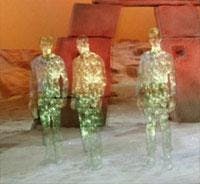
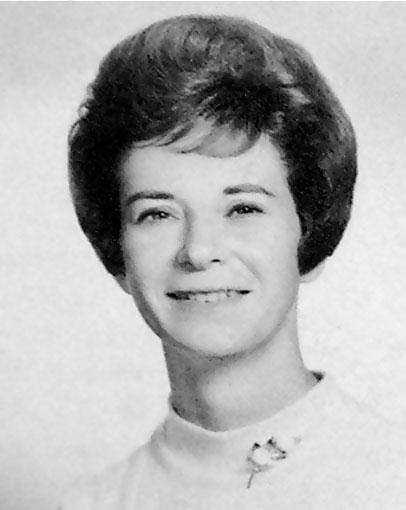
d - but I am deeply moved and deeply appreciative of all the fans out there. They are the real life blood of STAR TREK.Speaking of Star Trek (2009). Did you see it? What did you think of it?FONTANA: I have not seen any STAR TREK movie since ST 6. There’s a perception that you were Gene Roddenberry's secretary and worked your way up to writer, which is not the case. Take us through the early days of your Star Trek association.FONTANA: History here - most people ignore the fact that I was a writer before STAR TREK. Between 1960 and 1963, while working for Samuel A. Peeples, I sold two stories and two scripts (produced) to THE TALL MAN series, done a rewrite on a SHOTGUN SLADE script (produced) and sold a story of FRONTIER CIRCUS (produced). In 1963, Samuel A. Peeples left MGM (where he had written a movie script) to move on to other projects, and I decided to stay at the studio. I saw an ad on the job board for a position as secretary to the Associate Producer of a new show called THE LIEUTENANT (created and produced by Gene Roddenberry). I applied for the job and was hired to be production secretary to Del Reisman on the show - which is how I met Roddenberry. When his secretary was in the hospital for two months due to complications from an appendectomy, I worked directly for Roddenberry. He came to know I had already written produced television material. When THE LIEUTENANT came to an end, Roddenberry started trying to sell STAR TREK around town. (MGM/Norman Felton had already said "no" to doing it. Guess how many times they've kicked themselves around the block about THAT decision?) When STAR TREK sold to Desilu, Gene asked me to come to work there as his production secretary.
